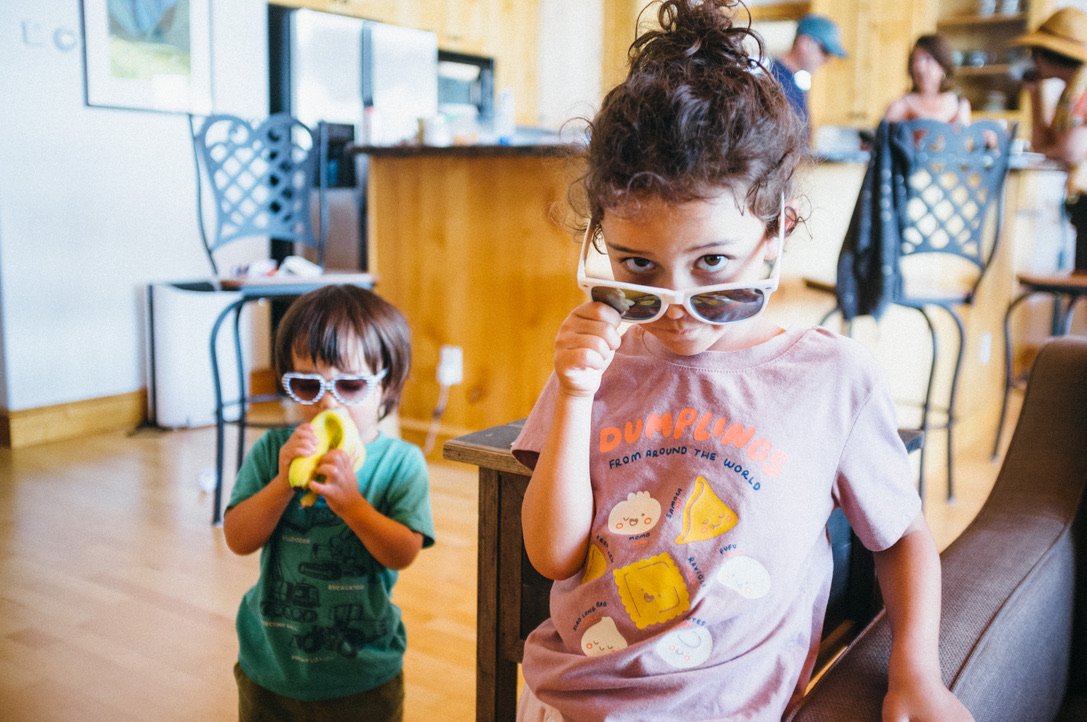The Math Behind Endless Summer
My daughter just started summer vacation. No longer governed by the punctual school bell, she now leisurely wakes up each day when her body tells her. At breakfast, Chelsea and I talk about meetings, populating slide decks, and the latest trends in AI and how we can take advantage of it. But for our daughter? Her most important decisions include whether or not she wants to spend the day reading or drawing, what outfit she’ll wear to her camp’s Tie Dye, Tutus, and Tie Spirit day (spoiler alert: tie dye won), and what television show she’ll watch in the afternoon.
Oh, the joys of endless summer.
What would it be like to be in her shoes and have an entire summer off? 75 days of pure joy and endless possibility. But before I can even ponder this, the restless cynic inside me rears its ugly head and whispers in a pessimistic voice, “75 days? That’ll be over before you know it.”
It’s hard to argue. As a grown adult and father of two, I constantly feel time passing by. It’s hard to imagine that we’re nearly halfway done with this year and that the next school year begins in a matter of months. Why does time seem to move faster as an adult?
One popular answer is that time makes up a shrinking percentage of our total life as we grow older. I recently watched Beef, the hit Ali Wong and Steven Yeun series on Netflix and enjoyed Joseph Lee’s character, George Nakai, explanation of this. He says, “Time speeds up as you get older, because when you’re a year old, that year is a hundred percent of your perception of time, but as you get older, that year is a smaller fraction of the time you’ve experienced.”
The idea is simplistic but it makes sense. And as I watch my daughter read her twelfth library book for the day, I can’t help but wonder how much her summer vacation represents of her life? And more importantly, how much time would I need to take off to replicate this?
The Mathematics of Summer Vacation
If we consider a kindergartener who was born on January 1, 2017 and has a 75-day summer break, that summer break would make up 3% of their total life.
3%! You might think that doesn’t seem like a lot. But let’s consider that child is now a 40-year-old adult in the year 2063. How much does 75 days represent of their life now?
.4% Suddenly, 3% of your total life off is looking pretty good now, right?
And now, the million dollar question: if that 40-year-old adult wants to take 3.2% of their life off like they did in kindergarten, how many days would they need to take off?
The answer would be 529 days.
Yes, that’s right. If you were to measure summer vacation as the percentage of someone’s life, a 40-year-old adult would have to take 529 days off to match the same percentage of a kindergartner’s summer break.
In contrast, the longest vacation I’ve ever taken was three weeks off when I went on my honeymoon. I have friends who have reached their sabbatical at companies and they were given 6 weeks off. And I know people who have decided to take a year off of work. But a year and a half? That seems, well... endless!
What about as you get get older? Still considering a birthday of January 1, 2017 and a consistent 75-day of summer break, this is what percentage summer break makes up of a student’s life from5th grade to the summer after your Senior Year of College:
And of course, this would be the number of days a 40-year-old adult would have to take off to proportionally account for their life:
Even with Senior Year of College being 18 years ago from a 40-year-old adult, you would still need to take 155 days off to match the percentage of your life that break represented.
So what does this mean? No company would give an employee 75 consecutive days off a year, let alone 529. So what can we do instead?
Take as much time off as possible
When taking time off, make sure we’re fully off.
After all, studies show that taking at least three weeks of vacation can reduce your risk of dying by 37%. So if you haven’t taken any vacation this year yet, do it now. Give yourself a summer break, go outside in nature, enjoy a barbecue, and unleash your inner child.







